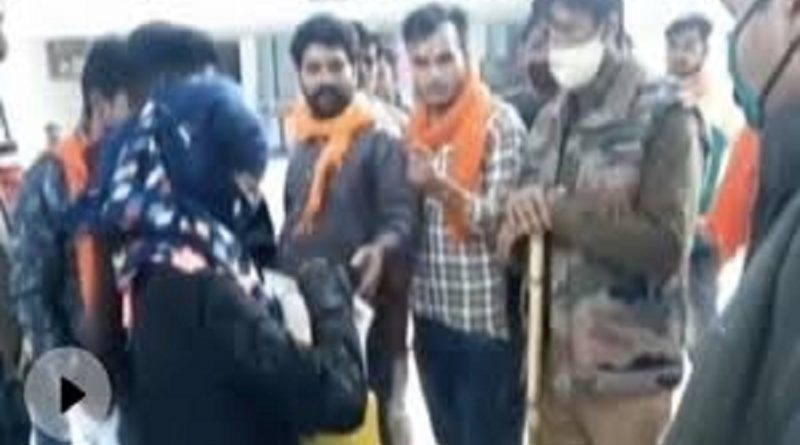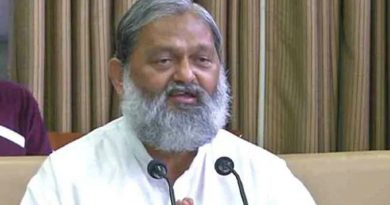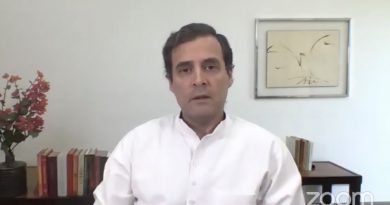| |
|---|
News Desk: It took five years of stolen conversations, running from their families and finally a High Court order for Mohit Nagar, 26, and Amreen Malik, 22, to tie the knot.

Nagar is Hindu and Malik is Muslim. When Nagar’s family found out about his feelings for Malik, they stopped him from going to the medical store he ran opposite her home in Meerut, in India’s Uttar Pradesh state. Malik’s family took away her phone, locked her up and arranged a marriage with someone else.
So the Indian couple eloped to Delhi in March, Malik scaling the wall of her family home in the middle of the night while Nagar waited outside. They were finally married in July.
Fault lines have always existed along caste and religious boundaries in India, particularly when the lines are crossed for love. “Religion was the only barrier and we tried in vain to convince our families,” Nagar says from Ghaziabad, near Delhi, where the couple now lives.
Mohammed Riyaan Ansari, a 25-year-old Muslim, and Suman Ansari, 23 and previously a Hindu, married in 2018 and now have a three-year-old daughter. “We eloped in March 2018 after Suman was constantly tortured,” Riyaan Ansari says.
Running away from home has meant a financial struggle for the couple, who had to keep travelling in their first year of marriage to escape false complaints and persecution.
“We were in hiding for the first three months and wouldn’t stay in one place beyond 10 days,” Singh says. “We would go to bed every night wondering what the next day would bring. The fear and tension are hard to describe.”
Singh’s brothers registered false charges of kidnapping against Gupta’s family. His sisters were arrested and Singh was falsely labelled as mentally unbalanced. Pregnant, she filed a petition to get the charges dropped, making the rounds of courtrooms and women’s help groups. Singh remembers always looking over her shoulder as she hurried about, fearing for her life.
Singh eventually won a favourable verdict in a case now considered a judicial landmark because the Supreme Court supported her right to choose. She was also lucky to escape with her life. Many women don’t.
Saroj had recorded videos in which she said her relatives were torturing her to make her end the relationship and she feared for her life.
“It’s not just about faith or caste, it’s about the right to choose, which the patriarchal thought process can’t allow,” says Ranu Kulshrestha, a development professional and co-founder of Dhanak of Humanity, a non-profit organisation that is against honour crimes and forced marriages.
Kulshrestha and her husband Asif Iqbal had an interfaith marriage 20 years ago and co-founded Dhanak as a support group.
Based in Delhi, Dhanak has helped more than 1,700 couples since 2012, working with partner organisations in other Indian cities. Iqbal says couples approach them with different problems: “Those who want to get married but are facing family opposition, and those who do not know how to take things forward legally are some,” he says.
Dhanak, which is approached by an almost equal proportion of interfaith and intercaste couples asking for help, advises the former to marry according to the Special Marriage Act of 1954, a law that allows individuals to get married with a civil contract and without changing their religion.
The organisation has petitioned for changes to the law, which now stipulates a 30-day public notice before marriage, because the lengthy wait increases the possibility of persecution and coercion.
Nagar and Malik used the law to get married. “I didn’t even know that support groups existed or there was a Special Marriage Act,” Nagar says. “There has to be more awareness about this among younger people.”
“You can’t stop people from falling in love or restrict it within boundaries”:
Iqbal says more awareness of safe houses, recently set up by the state government in Delhi, is also needed. Dhanak offers help by explaining these legalities, helping couples find a safe place to stay, assisting them to approach the court for protection and sometimes even helping them financially.
“Dhanak helped us refine our thought process,” Nagar says. “We realised we needed to respect each other’s beliefs for the marriage to succeed. We learnt to handle our respective families and the pressures from them in the best possible way.”
The Ansaris, meanwhile, are grateful to Sanjay Sachdev, who runs the rakishly named Love Commandos, another non-profit support group. They call him baba, a term of respect and affection for an older person. After they fled, they filed a complaint with the Delhi Commission for Women and were advised to seek accommodation in the Love Commandos’ shelter home.
Because practical experience always works best, Dhanak organises “solidarity home visits” for lovers to see how interfaith and intercaste couples can build a normal life together.
“Terms like love jihad are ways to snatch away agency from women and strengthen patriarchy,” says journalist Samar Halarnkar, who set up India Love Project, an Instagram account that publishes love stories that cross caste, religion and gender boundaries.
For many, the India Love Project has become the go-to antidote to India’s current intolerant atmosphere, gathering 15,000 Instagram followers in less than a month amid a flood of submissions.
As the account’s following grows, Halarnkar wants to maintain it as a forum for stories that can normalise love beyond caste and religion, and provide information about places for interfaith and intercaste couples to find support.
Armed with her Supreme Court judgment, Lata Singh has helped organise 39 intercaste marriages. She says more people coming together across social barriers is the only way to overcome the atmosphere of hate and persecution.
For her part, Dhanak’s Kulshrestha hopes change is on the way and religious hate and intolerance will be conquered. “Because you can’t stop people from falling in love or restrict it within boundaries.”




